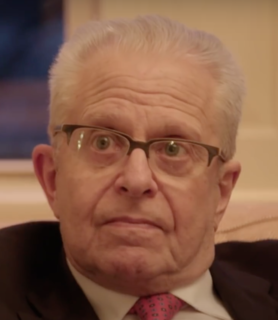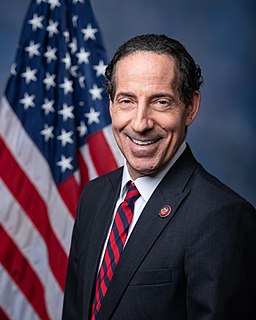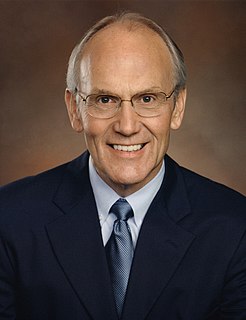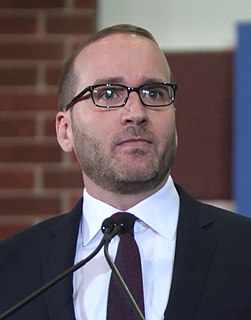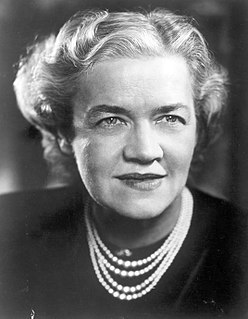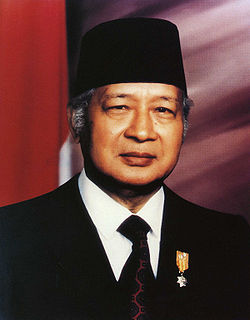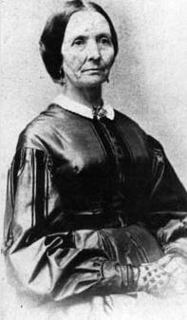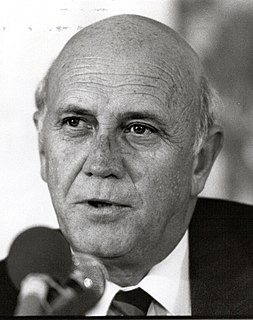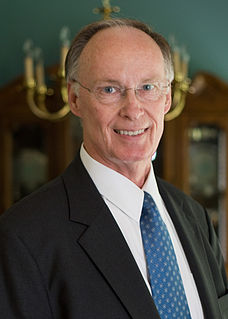Top 1200 Constitution Quotes & Sayings - Page 5
Explore popular Constitution quotes.
Last updated on November 26, 2024.
That's the argument of flexibility and it goes something like this: The Constitution is over 200 years old and societies change. It has to change with society, like a living organism, or it will become brittle and break. But you would have to be an idiot to believe that. The Constitution is not a living organism; it is a legal document. It says something and doesn't say other things.
I consider the foundation of the Constitution as laid on this ground that 'all powers not delegated to the United States, by the Constitution, nor prohibited by it to the states, are reserved to the states or to the people.' To take a single step beyond the boundaries thus specially drawn around the powers of Congress, is to take possession of a boundless field of power not longer susceptible of any definition.
I would have to have people totally committed to the Declaration of Independence and the Constitution of this United States. And many of the Muslims, they are not totally dedicated to this country. They are not dedicated to our Constitution. Many of them are trying to force Sharia law on the people of this country.
One of the most extraordinary examples in recent decades [of unitary visions of constitutional enterprise] is found in a book called "Takings"... Epstein makes an extremely clever but stunningly reductionist argument that the whole Constitution is really designed to protect private property... Can a constitution reflecting as diverse an array of visions and aspirations as ours really be reducible to such as sadly single-minded vision as that?
If they are incorporated into the Constitution, independent tribunals of justice will consider themselves in a peculiar manner the guardians of those rights; they will be an impenetrable bulwark against every assumption of power in the legislative or executive; they will be naturally led to resist every encroachment upon rights expressly stipulated for in the Constitution by the declaration of rights.
Hence both women and children must be educated with an eye to the constitution, if indeed it makes any difference to the virtue of a city-state that its children be virtuous, and its women too. And it must make a difference, since half the free population are women, and from children come those who participate in the constitution.
The first right of every human being is the right of self-defense. Without that right, all other rights are meaningless. The right of self-defense is not something the government bestows upon its citizens. It is an inalienable right, older than the Constitution itself. It existed prior to government and prior to the social contract of our Constitution.
The Constitution, when it says, "We, the people of the United States, in order to form a more perfect union, establish justice, ensure domestic tranquility, provide for the common defense, promote the general welfare, and secure the blessings of liberty to ourselves and our posterity, do ordain and establish this Constitution for the United States of America," meant just what it said without reference to color or condition, ad infinitum.
Today's decision affirms what we all know to be true — the U.S. Constitution guarantees the basic civil rights of all Americans, not just some. Utah's ban on marriage equality does nothing to strengthen or protect any marriage. Instead, it singles out thousands of loving Utah families for unfair treatment simply because of who they are. Our Constitution does not allow for such blatant discrimination.
The Constitution exists precisely so that opinions and judgments, including esthetic and moral judgments about art and literature, can be formed, tested, and expressed. What the Constitution says is that these judgments are for the individual to make, not for the Government to decree, even with the mandate or approval of a majority. Technology expands the capacity to choose; and it denies the potential of this revolution if we assume the Government is best positioned to make these choices for us.
These economic royalists complain that we seek to overthrow the institutions of America. What they really complain of is that we seek to take away their power. Our allegiance to American institutions requires the overthrow of this kind of power. In vain they seek to hide behind the flag and the Constitution. In their blindness they forget what the flag and the Constitution stand for.
Our founding fathers detested the idea of a democracy and labored long to prevent America becoming one. Once again - the word 'democracy' does not appear in the Declaration of Independence, the Constitution of the United States, or the constitution of any of the fifty states. Not once. Furthermore, take a look at State of the Union speeches. You won't find the 'D' word uttered once until the Wilson years.
The NRA believes America's laws were made to be obeyed and that our Constitutional liberties are just as important today as 200 years ago. And by the way, the Constitution does not say Government shall decree the right to keep and bear arms. The Constitution says 'The right of the people to keep and bear arms shall not be infringed.'
The provision of the Constitution giving the war making power to Congress was dictated, as I understand it, by the following reasons: Kings had always been involving and impoverishing their people in wars, pretending generally, if not always, that the good of the people was the object. This our convention understood to be the most oppressive of all kingly oppressions, and they resolved to so frame the constitution that no man should hold the power of bringing this oppression upon us.
I remember George Mitchell - I was doing the Clarence Thomas hearing, and there were 48 senators declared they were not prepared to vote for him at the front end. We could have filibustered that and stopped it. George and I - George was the leader at the time - took the heat from every liberal group saying, "No, no, that's not the way the system is supposed to work, since the Constitution - the president shall propose and the Constitution shall dispose, we're going to let them hear this."
The faith of the Latter-day Saints and the teaching that I have had since I was a child at my mother's knee, as well as from this stand, is that the Constitution of our country was written by men inspired of the Lord God Almighty. Therefore we, as Latter-day Saints, more than any other people, ought to be supporters of the Constitution, and all constitutional law.
When a judge goes beyond [his proper function] and reads entirely new values into the Constitution, values the framers and ratifiers did not put there, he deprives the people of their liberty. That liberty, which the Constitution clearly envisions, is the liberty of the people to set their own social agenda through the process of democracy.
We, the People of this country, have no unalienable rights... all our rights are subject to modification... the Constitution of the United States of America is nothing more than a piece of paper and... our government should not be restrained by the Constitution because our government can do good things for people.
The EU Constitution is something new in human history. Though it is not as eloquent as the French and U.S. constitutions, it is the first governing document of its kind to expand the human franchise to the level of global consciousness. The language throughout the draft constitution speaks of universalism, making it clear that its focus is not a people, or a territory, or a nation, but rather the human race and the planet we inhabit.
Whether a law be void for its repugnancy to the Constitution, is, at all times, a question of much delicacy, which out seldom, if ever, to be decided in the affirmative, in doubtful case. ... But it is not on slight implication and vague conjecture that the legislature is to be pronounced to have transcended its powers, and its acts to be considered as void. The opposition between the Constitution and the law should be such that the judge feels a clear and strong conviction of their incompatibility with each other.
All three states - the Lacedaemonian, the Cretan, and the Carthaginian - nearly resemble one another, and are very different from any others. Many of the Carthaginian institutions are excellent. The superiority of their constitution is proved by the fact that the common people remains loyal to the constitution; the Carthaginians have never had any rebellion worth speaking of, and have never been under the rule of a tyrant.
In its proper meaning equality before the law means the right to participate in the making of the laws by which one is governed, a constitution which guarantees democratic rights to all sections of the population, the right to approach the court for protection or relief in the case of the violation of rights guaranteed in the constitution, and the right to take part in the administration of justice as judges, magistrates, attorneys-general, law advisers and similar positions.
If I have not decided to step down, it does not mean that I do not want to step down but because I want to ensure that my resignation will not affect the constitution, which must be implemented properly. This means that the Pancasila ideology and the 1945 Constitution will continue to be implemented.
Patriotism and loyalty in defense of the Constitution of the United States is constantly enjoined upon us. President McKay again this morning has made reference to the cause of liberty in his remarks. To be effective in such teaching, we must begin by inspiring in each heart the faith that the Constitution of the United States was written by inspired men whom God raised up for that very purpose.
I heard the prophet Joseph Smith say the time would come when this nation would so far depart from its original purity, its glory, and its love for freedom and its protection of civil rights and religious rights, that the Constitution of our country would hang as it were by a thread. He said, also, that this people, the sons of Zion, would rise up and save the Constitution and bear it off triumphantly.
Gun rights advocates - many whom also believe that the US constitution is divinely inspired and that the rights it enumerates are God-given - face a conundrum. Their very insistence that the government not restrict guns in public spaces or limit their sales in any way also obviously inhibit other Americans' rights as covered by the US constitution.
The Constitution has to be interpreted loosely, otherwise it becomes a straitjacket. You can't interpret it literally. You can pretend to, and go digging around in 18th Century dictionaries to figure out what 'cruel and unusual punishment' meant or what the 'right to bear arms' meant, but that is all fake really. The Constitution has to be interpreted in light of modern needs, and that's what they (the strict interpreters) end up doing in spite of all their investigations.
I understand the politics of the situation, I think that many Republican members of the senate believe that,get out the vote move. They can indicate that they're strong for their base. But the Constitution's pretty clear. The president Donald Trump has to nominate someone. The senate can choose to disapprove. There's nothing in their Constitution that says the grounds upon which they must vote. But to refuse even to meet with the individual, or to have the process go forward, that's just pure politics.
While the president is to nominate that individual [to Supreme Court], we in the Senate must provide our advice and consent. This function is not well-defined. The Constitution does not set down a road map. It does not require hearings. In fact, it does not even require questioning on your understanding of the Constitution nor the role of the Supreme Court.
I do not know how Vladimir Putin will be esteemed by the future history, but I have no doubt that among his successes and advantages for Russia historians shall absolutely note the fact of his not altering the constitution, for he created a precedent. And afterwards, no matter who might become president, it shall be extremely difficult to alter the constitution exactly on that point. Extremely difficult.
Fifteen years after the new dispensations started in South Africa, if one looks back, there are reasons to be positive and say we have achieved what we wanted to achieve, but there are also reasons for concern. Not everything turned out exactly as I would have liked it to turn out. On the positive side, we have a good constitution, there has been no effort to really amend the constitution and change the values and the principles contained therein and in our bill of rights.
To maintain the ascendancy of the Constitution over the lawmaking majority is the great and essential point on which the success of the [American] system must depend; unless that ascendancy can be preserved, the necessary consequence must be that the laws will supersede the Constitution; and, finally, the will of the Executive, by influence of its patronage, will supersede the laws . . .
We current Justices read the Constitution in the only way that we can: as Twentieth Century Americans. We look to the history of the time of framing and to the intervening history of interpretation. But the ultimate question must be, what do the words of the text mean in our time. For the genius of the Constitution rests not in any static meaning it might have had in a world that is dead and gone, but in the adaptability of its great principles to cope with current problems and current needs.
The First Amendment and Fourteenth Amendment rights in the United States Constitution were being violated in Albany again and again - freedom of speech, freedom of assembly, the equal protection of the laws - I could count at least 30 such violations. Yet the president, sworn to uphold the Constitution, and all the agencies of the United States government at his disposal, were nowhere to be seen.
The 14th Amendment, 2nd Amendment, there's nothing in the Constitution that says that if you are born to an illegal immigrant in America, that you are an American citizen. It's not there. People think it is. They confuse it with being born to an American citizen in America or overseas. But there's nothing in the law, nothing in the Constitution.
I think [John Adams's] influence on the federal Constitution was indirect. Many including James Madison mocked the first volume of Adams's Defence of the Constitutions of the United States in 1787. But his Massachusetts constitution was a model for those who thought about stable popular governments, with its separation of powers, its bicameral legislature, its independent judiciary, and its strong executive.
The Second Amendment is in the Constitution to help citizens protect themselves from people like Senator Dianne Feinstein who would come along, and if they could determine what words you can and cannot say, where and where you can't say them. The Constitution is there to protect you from mayors like Mike Doomberg who wants to tell you how big your beverage can be.
The Constitution does not protect the sovereignty of States for the benefit of the States or state governments as abstract political entities, or even for the benefit of the public officials governing the States. To the contrary, the Constitution divides authority between federal and state governments for the protection of individuals.
A constitution, therefore, is to a government what the laws made afterwards by that government are to a court of judicature. The court of judicature does not make the laws, neither can it alter them; it only acts in conformity to the laws made: and the government is in like manner governed by the constitution.
The Constitution was written to protect individual freedom and limit the ability of the government to encroach upon it. The liberals don't like that. The Democrats are very unhappy. The Constitution limits government too much. So they want to rewrite it, have a second Bill of Rights. So they want a new Bill of Rights that spells out what government can do instead of a Bill of Rights that tells government what it can't do.
The constitution of the United States is to receive a reasonable interpretation of its language, and its powers, keeping in view the objects and purposes, for which those powers were conferred. By a reasonable interpretation, we mean, that in case the words are susceptible of two different senses, the one strict, the other more enlarged, that should be adopted, which is most consonant with the apparent objects and intent of the Constitution.
I would consider myself American in the way of what the actual idea that's in the Constitution is, not the way that it's performed: All men are created equal, freedom for all, that's something that I obviously believe in. I don't consider myself American because I'm not sure if those are the values that we actually prioritize as much as we need to, but I consider myself American if you look at the Constitution.
We need to reform the constitution in Chile. The current one was written and passed in 1980 during the dictatorship. Some changes were made after the return of democracy, but its origins remain illegitimate. Instead of continuing to make fixes here and there, we need to undertake fundamental changes to our constitution to make it reflect the reality of our democratic society.
Upon the whole I doubt whether the Benefits of opposition to the Constitution opposition to the Constitution will not ultimately be productive of more good than evil; it has called forth, in its defence, abilities which would not perhaps have been otherwise exerted that have thrown a new light upon the science of government, It has given the rights of man a full and fair discussion, and explained them in so clear and forcible a manner, as cannot fail to make a lasting impression.
Unless we put medical freedom into the Constitution, the time will come when medicine will organize into an undercover dictatorship to restrict the art of healing to one class of Men and deny equal privileges to others; the Constitution of the Republic should make a Special privilege for medical freedoms as well as religious freedom.
The states have authority to interpret the Constitution, enforce it, and protect the people from violations of it by the federal government In the first place, there is not a syllable in the plan under consideration which directly empowers the national courts to construe the laws according to the spirit of the Constitution, or which gives them any greater latitude in this respect than may be claimed by the courts of every State.
I will not let the Patriot Act, the most unpatriotic of acts, go unchallenged. At the very least, we should debate. We should debate whether or not we are going to relinquish our rights, or whether or not we are going to have a full and able debate over whether or not we can live within the Constitution, or whether or not we have to go around the Constitution.
I believe in the Constitution. I believe in separation of powers. I believe in the rule of law. I believe in limited government. And these are principles and policies that apparently neither the national Republican nor the national Democrat Party believes in. I believe great damage is being done to our Constitution, and I see no remedy at all, no likelihood of that changing, if we rely on the two parties to field our candidates for national office.



